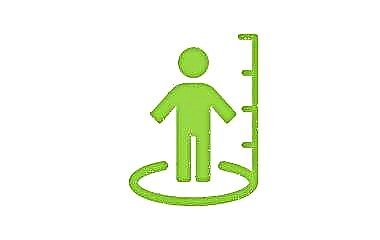The hardest thing is over - you have safely endured the birth and are now at home, and the baby is fast asleep in its bed. The husband is crazy about happiness and loves you even more. Relatives and friends overwhelm with congratulations and gifts. In a word, live and rejoice. And you want to cry. You feel anxiety from nowhere. It seems as if something is about to happen, and all good things will dissolve like a dream. Do not be alarmed, you are not the only one with whom this happens. All women experience such sensations in the first few days after childbirth.

However, in ~ 50% of women, this depression is prolonged and already ceases to resemble ordinary sadness or experience. This condition is called postpartum depression. In women, it can manifest itself to a lesser or greater extent, briefly, or drag on for many months. Postpartum depression occurs in 50% of women, in 13% it is severe.
Postpartum depression is a painful condition of a woman after childbirth, characterized by depressed mood, tearfulness, unwillingness to see her child, and reversible mental disorders. In most cases, PD is not very pronounced, but in severe cases, the mother may even have a desire to kill herself or the child. Such women require treatment in special institutions.
Video # 1: About Postpartum Depression
Signs and causes of depression
- You cry often, sometimes several times a day. For no reason, you can suddenly get upset and burst into tears. The reasons for crying are the most insignificant, which you would not even notice before;
- Whatever you do, there are annoying thoughts in your head that something is wrong with the baby, no one loves you, everything will end badly, the world will collapse tomorrow, and so on. Moreover, thoughts are intrusive, you cannot get rid of them and think about something else. Because of this, you cannot fall asleep for a long time, which leads to lack of sleep and worsening of poor health;

- As you scroll through obsessive thoughts in your head, you begin to look for their reason in yourself. And, of course, find: the appearance is not what it was before, there is no free time for a husband. And you draw conclusions: of course, who needs me so fat (unkempt, tired, sad, or something else), in general, you begin to develop a feeling of inferiority;
- The responsibility for the child that has increased many times after childbirth turns into a feeling of fear for him. You are constantly shaking over the crumbs, the slightest signs of malaise in the child lead to panic. At night, you jump up many times and check the baby's breathing.
All of the above is exhausting a woman and makes her irritable. Internal emptiness and indifference to everything that previously gave pleasure and joy appears. A woman becomes indifferent and indifferent to her husband, it may seem to her that love for him has passed. Moreover, all men in the world become disgusting to her.
Apathy reaches such a degree that it manifests itself as indifference to the child, unwillingness to care for him, even to the point of hostility.
Causes:
- dramatic hormonal changes that occur during and during childbirth;
- psychological unpreparedness for motherhood or unwillingness for it;
- physical exhaustion of the body, fatigue, overstrain, difficult childbirth, material or family trouble;
- hereditary, age (after 40 years) or personal predisposition to depressive conditions.
Somatic symptoms can be added to everything else.
Somatic symptoms:
- common headaches or migraines;
- increased heart rate, dizziness;
- indigestion (loss of appetite, constipation);
- neuralgia;
- itchy skin;
- insomnia, nightmares, suicidal thoughts, a desire to harm yourself or a newborn;
- menstrual irregularities or disappearance of menstruation, frigidity.
Video number 2
Psychologist Anna Galepova tells about postpartum depression, anxiety, fears for the child:
Fighting depression
With a mild degree of postpartum depression, you can get rid of it yourself. The most important thing is a woman's understanding that this condition is temporary and in order to get rid of this condition, a certain self-alignment is required.

- Remind yourself often that a miracle has happened in your life, many of which can only dream of. Remember what you had to go through for this miracle to happen. Thank God (fate) for the fact that everything went well, everyone is alive and well. Feel the peculiarity of your situation, then the household routine will repent to you with a trifle of life.
- Think about how the baby needs your love now, when he is helpless in his new world. More often take the baby in your arms, stroke him, talk affectionately. Tactile contact, breastfeeding contribute to the production of "hormones of happiness" that will help you fully experience the joy of motherhood, tenderness and love for your baby.
- No matter how the circumstances develop, try to understand that you are not alone now. A person has appeared in the world whose well-being depends on you.
- If possible, be sure to allow yourself to be alone with yourself. Each person must have a personal life and personal time, otherwise he loses his individuality and becomes depressed. Take a day off when your husband is at home. At first, many women are afraid to leave babies with their fathers - overcome this in yourself. An increased sense of responsibility will only drive you into greater depression. Grab your phone and go shopping, the cinema or the hairdresser. If things get tough, they will call you. Even breastfeeding should not interfere with a full life, a breast pump is your good assistant in this matter (how to choose and use a breast pump).
- Don't be ashamed of being overweight - it's a temporary natural phenomenon. Extra pounds will leave you within a year, especially if you are breastfeeding, because the fat accumulated during pregnancy goes into milk (how to lose weight after giving birth).
- Get enough sleep. Do not take on all the worries, leave some of them for your husband, grandmother, grandfather or nanny. You must have an assistant. If you feel tired, choose rest over cleaning and cooking.
- Do not listen to those who give you advice to go on a weight loss diet or eliminate a bunch of foods from your diet for fear of allergies in your child. If you are a nursing mother, eat whatever you want and how much you want, excluding obvious allergens. Right now, you need to eat well and gain strength after stress (nutrition of a nursing mother).
- The closest person to you is your husband. Do not move away from him in silent mystery. Men do not understand well the emotional states of women. Talk to him and tell him specifically what is happening to you, what you feel, what you think, ask for help. For your trust, he will only be grateful to you.
- Don't bury yourself alone. Chat with other mothers, talk heart to heart. For sure, you will meet women with the same problems. Perhaps some of them managed to solve them or you will become like-minded people in this struggle. In any case, this will be a support for you.
- Many relaxing and meditative techniques (aromatherapy, bath, massage) teach how to cope with depression on your own. At first, newborns sleep a lot, so you will have time for relaxation, reading, and simply - doing nothing.
When you need specialist help
What if all this does not relieve depression, and you no longer understand how to get out of this state?  It may be worth contacting a specialist. It is better if it is a perinatal psychologist or a psychotherapist. First, it will be necessary to remove anxiety, fears. The doctor will help you relax, normalize your mood, and return to the natural perception of life. Different techniques can be applied: NLP, psychoanalysis, hypnosis or others, depending on the skills of the specialist and the factors that caused the postpartum depression.
It may be worth contacting a specialist. It is better if it is a perinatal psychologist or a psychotherapist. First, it will be necessary to remove anxiety, fears. The doctor will help you relax, normalize your mood, and return to the natural perception of life. Different techniques can be applied: NLP, psychoanalysis, hypnosis or others, depending on the skills of the specialist and the factors that caused the postpartum depression.
Further, the psychotherapist may offer you to go through sessions of family, cognitive psychotherapy, during which internal family problems, childhood complexes, resentments and everything that can return you to a depressive state after a while will be worked out.
Treatment is consolidated by analyzing negative scenarios and changing the attitudes and views of a woman on problems.
In severe cases of depression, the woman is prescribed antidepressants or anti-anxiety drugs. But due to their high toxicity, they are taken in exceptional cases. If it is impossible to refuse drugs, you have to sacrifice breastfeeding.
Prevention
Depression prevention is about informing the pregnant woman about possible changes in her emotional state after childbirth.
In most cases, a woman, understanding the cause of her depressed mood, is able to control her emotional background herself and get out of this state after some time. Support of loved ones and spouse during pregnancy is important. Healthy, warm relationships in the family are a guarantee that a woman's postpartum period will go well. Especially women should be closely monitored, whose status is already burdened by depressive episodes or some kind of trouble.
When passes
Women ask themselves the question: how long does postpartum depression last, because it is easier to cope with any condition knowing its timing.
A mild form of depression can be observed for only a couple of months, but it can drag on for six months. Severe depression without treatment can last for years.
But when the depression passes, everyone can breathe a sigh of relief. After all, the happiness of the family directly depends on whether the woman is happy. Having overcome this state, many women then with a smile remember all their whims, tears and obsessive thoughts, and forget what they went through. No one is immune from illness, the support of loved ones and a psychotherapist will speed up recovery.
We read further:
- 9 questions about postpartum depression everyone cares about
- Postpartum psychosis
- How not to go crazy after childbirth
- 6 Worst Tips to Give a Mom for Postpartum Depression
Video clips
Lecture
Postpartum depression: myth or reality?
Postpartum depression - is it really a difficult state of body and mind, or is it just an invention of hysterical mothers who cannot control themselves? What are the causes of postpartum depression and how to avoid it?




